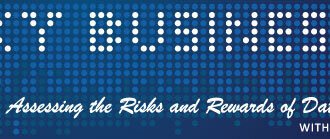Business goals are no doubt important, but in an analytic project it makes sense to balance the organization’s goals with those of the Data Science department. Most individuals will recognize balance as a principle of art, but the notion of creating a sense of equilibrium between the business and the Data Scientist is just as foundational in today’s insight economy. To not cultivate this balance is to invite ruin into the organization.
Question 1: What are the Data Science Goals?
Business goals are no doubt important, but in an analytic project it makes sense to balance the organization’s goals with those of the Data Science department. Most individuals will recognize balance as a principle of art, but the notion of creating a sense of equilibrium between the business and the Data Scientist is just as foundational in today’s insight economy. To not cultivate this balance is to invite ruin into the organization.
Question 1: What are the Data Science Goals?

As a Data Scientist working in an organization, it is important to understand how the intended outputs of the Data Science project enable the achievement of the business objectives. Imagine a situation where a business has a set of defined goals, but the analytics team had a different target in mind or vice versa. The result is extra cost, time delay, and missed business opportunities. Unfortunately, these sort of happenings are more common than you would imagine in everyday business – and with organizations big and small. As a Data Scientist serving a business, it is prudent to define your goals in tandem with the business objectives and obtain buy-in of your interpretation. This can be done by explicitly documenting what you expect the output to be like and confirming its usefulness to the business unit you are supporting.
Question 2: What is the Data Science success criteria?

Businesses should work with Data Scientists who know how to precisely define a correct outcome in technical terms. In truth, it could prove important to describe these outcomes in subjective terms; however, if this ends up being the case, the person in charge of making these subjective judgments needs to be identified. Neither the business nor the Data Science department will succeed with a moving target. Transparency and visibility are always good things in business. This allows individuals to manage towards a known expectation.
Organizations working with Data Scientists who simply have technical know-how are missing out on significant value within their analytic projects. Organizations should seek to find professionals who know how to translate business concepts into analytic outcomes. This skill should be considered primary over knowing the most advanced techniques and methods when analyzing data. Unfortunately, most organizations are still on a discovery mission with regard to what they need from Data Science. Organizations still remain beholden to the idea that if they hire a Ph.D. in some highly-analytical field then success is just around the corner for their organization. This is rarely the case. In fact, most Ph.D.’s need significant time to warm up to the corporate culture and learn the language of business before they can be fully effective.
It may seem obvious to the organization, but having your analytic superhero be able to quickly judge the type of Data Science problem that you are looking for them to contribute to is paramount to pulling it off. Typically, being able to specify things like whether the target is a classification, description, prediction, or a clustering problem works well for all involved and starts to build context across disciplines in the organization. This becomes especially important when a Data Science department begins to grow and less experienced Data Scientists can learn to see more like senior Data Scientists; this can only happen with intentionality and purpose.
Organizations should come to expect that one way a good Data Scientist will often demonstrate his or her ability is by reframing or redefining the problem put before them by the company. The first few times this may seem off-putting, but organizations who learn to embrace this sort of transformation of the business problem will be able to compete for the future. Practically speaking this may look like shifting to “medical device retention” rather than “patient retention” when targeting patient retention delivers results too late to affect the outcome.
As a business concerned with the ROI from your Data Science investment, you will undoubtedly want to see activities of the Data Scientist which specify criteria for model assessment. These typically present themselves as model accuracy or performance and complexity. In many cases, it is indispensable to see that a Data Scientist has defined benchmarks for evaluation criteria. Even in the case of subjective assessment, criteria definition becomes important. At times it can be difficult to meet a company’s Data Science goal of model explainability – or data insights provided by the model – if the Data Scientist has not done a good job of uncovering this as a businesses need. So, the adage “to begin with the end in mind” should prompt the Data Scientist to ask an appropriate series of questions of the business to ensure value creation.
Summary
Remember that the Data Science project success criteria are without a doubt different than the business success criteria. Any Data Scientist with experience will say that it is always best to plan with deployment from the beginning of a project. If the organization experiences a Data Scientist not following this best practice, expect spotty results and a bit of frustration from business counterparts. As an organization, it is vital to push your Data Scientist to work hard and be assertive within the project – as well as to use their mind and imagination. This should give him or her the permission to shape the future your company desires.






